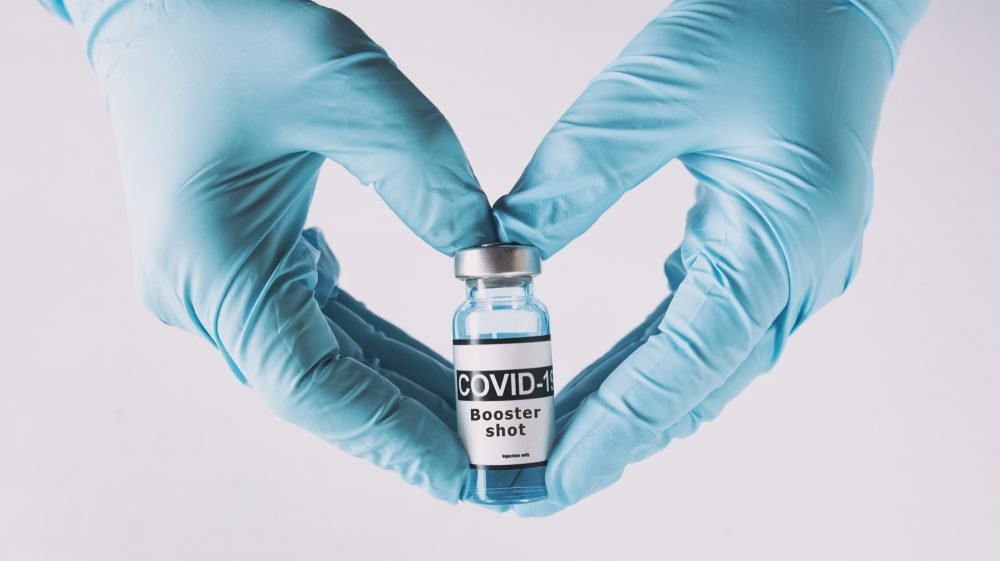Advertisment
Booster of COVID-19 vaccine administered six months after two-dose regimen of BNT162b2, shows substantial increase in antibody and T-cell responses – Johnson & Johnson

Johnson & Johnson announced preliminary results from an independent study, including a subset of participants from the Janssen-sponsored COV2008 study, conducted by Dan Barouch, M.D., Ph.D., et al. of Beth Israel Deaconess Medical Center (BIDMC), which showed that a booster shot of the Johnson & Johnson COVID-19 vaccine (Ad26.COV2.S), administered at six months after a two-dose primary regimen of BNT162b2, increased both antibody and T-cell responses. These results demonstrate the potential benefits of heterologous boosting (mix-and-match). The article describing these results have been posted on medRxiv.
“There is early evidence to suggest that a mix-and-match boosting approach may provide individuals with different immune responses against COVID-19 than a homologous boosting approach,” said Dan Barouch, M.D., Ph.D., Director of the Center for Virology and Vaccine Research at BIDMC. “In this preliminary study, when a booster dose of Ad26.COV2.S was given to individuals six months after a primary regimen with the BNT162b2 vaccine, there was a comparable increase of antibody responses at week four following the boost and a greater increase of CD8+ T-cell responses with Ad26.COV2.S compared with BNT162b2.”
These Phase II data are reinforced by preliminary results from the UK COV-BOOST clinical study published in The Lancet, which demonstrated that following primary vaccination with two doses of either BNT162b2 (n=106) or ChAdOx1 nCov-19 (n=108), a booster dose of the Johnson & Johnson COVID-19 vaccine increased both antibody and T-cell responses.
Cellular (T-Cell) Responses : In this preliminary study, boosting with the Johnson & Johnson COVID-19 vaccine after a primary vaccine regimen of BNT162b2 appears to lead to a greater increase in CD8+ T-cell responses than boosting with BNT162b2. These T-cell response data suggest differences between immune responses following homologous boosting with BNT162b2, and mix-and-match boosting with the Johnson & Johnson COVID-19 vaccine following a primary regimen of BNT162b2. The Johnson & Johnson COVID-19 vaccine leverages Janssen’s AdVac technology and cell-mediated immunity, including CD4+ and CD8+ responses. T-cells can target and destroy cells infected by the virus that causes COVID-19. Specifically, CD8+ T-cells can directly destroy infected cells and are aided by CD4+ T-cells.
Humoral (Antibody) Responses : Both the Johnson & Johnson COVID-19 vaccine and BNT162b2 as boosters led to similar neutralizing and binding antibody levels against the original SARS-CoV-2 strain, as well as the Delta and Beta variants, four weeks following the boost. However, after a mix-and-match booster dose of the Johnson & Johnson COVID-19 vaccine, antibodies continued to increase for at least four weeks whereas in individuals who received a homologous boost with the BNT162b2 vaccine, antibodies declined from week two to week four post-boost. Neutralizing antibodies are capable of binding to the virus in a way that blocks infection and confines the virus to the upper respiratory tract. Binding antibodies can bind to the virus’ spike protein and inactivate the virus through non-neutralizing antiviral functionalities.
The U.S. Centers for Disease Control and Prevention (CDC) Advisory Committee on Immunization Practices (ACIP) has recommended the Johnson & Johnson COVID-19 vaccine as a booster for all eligible individuals aged 18 years and older who receive an authorized COVID-19 vaccine.
See-“Safety and immunogenicity of seven COVID-19 vaccines as a third dose (booster) following two doses of ChAdOx1 nCov-19 or BNT162b2 in the UK (COV-BOOST): a blinded, multicentre, randomised, controlled, phase II trial”; Alasdair P S Munro, MRCPCH , Leila Janani PhD ,
Victoria Cornelius PhD , Parvinder K Aley, PhD, Gavin Babbage, MPhil, Prof David Baxter, PhD .,et al.
Open Access;Published:December 02, 2021DOI:https://doi.org/10.1016/S0140-6736(21)02717-3.,The Lancet.
“See- “Ad26.COV2.S or BNT162b2 Boosting of BNT162b2 Vaccinated Individuals”: C. Sabrina Tan, Ai-ris Collier, Jinyan Liu, Jingyou Yu, Huahua Wann, Katherine McMahan, et al.,doi: https://doi.org/10.1101/2021.12.02.21267198.
medRxiv.





